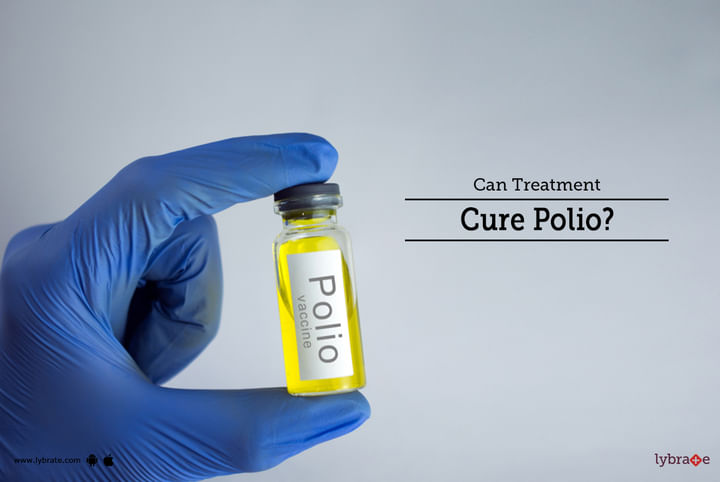Can Treatment Cure Polio?
Polio is an infectious viral disease resulting from the poliovirus infection. There are three different types of poliovirus, namely P1, P2, and P3 that infect the human body and have debilitating effects on the muscular and nervous system. The virus transmits from one person to another by means of air, water, and food. Once it infects the body, the symptoms take anywhere between a week and two weeks to become apparent. In many patients, the symptoms never become apparent or are limited to symptoms such as fever, sore throat, headaches, diarrhoea, which are common with a range of other diseases. In this context, it is important to know if any treatment is available for polio.
Polio treatment
Despite the thorough knowledge about the virus, no treatment can cure a person. Treatment is limited to relief from the symptoms without addressing the root cause. Pain relievers are used, and physical activity is recommended to prevent muscular deformity and loss of function.
- The treatment plan followed varies with the strain of polio infection and the symptoms. For symptoms like fever, headache, and muscle pain, only pain relievers and muscle relaxants like Ibuprofen, Diclofenac, and Acetaminophen are prescribed. Aspirins and opioids like morphine are avoided to prevent liver and respiratory failure. Heating pads may also be used to relieve pain, spasm, and stiffness.
- Patients complaining of urinary tract infections and difficulty in urination are given antibiotics. As retention of urine is a threat, such conditions require prompt medical attention. In extreme cases, patients may require the assistance of a urinary catheter to relieve the bladder.
- The patients with difficulty in breathing or with paralysis of respiratory muscles need artificial breathing support systems such as ventilators. The other respiratory complications may result from pneumonia which requires management using antibiotics. If cardiac disorders such as myocarditis and high blood pressure are suspected, the patient is prescribed appropriate therapy.
- The most debilitating effect of polio is paralysis. The prolonged immobility may also result in the loss of movement in the intestines resulting in inadequate digestion, constipation, and even kidney stones. Such conditions are treated with appropriate drugs. In case the brain and spinal cord are affected, the patient will require emergency medical treatment to avoid fatalities.
As the scope for a cure is limited, early intervention through treatment is essential to stop the virus from infecting the brain and spinal cord. However, prevention is better than cure. Immunization against all three strains of the poliovirus ensures safety from poliovirus for life. The World Polio Day observed every year on the 24th of October aims to raise awareness about the prevention through vaccination and treatment options to one day completely eradicate poliovirus from the face of the planet.


+1.svg)
